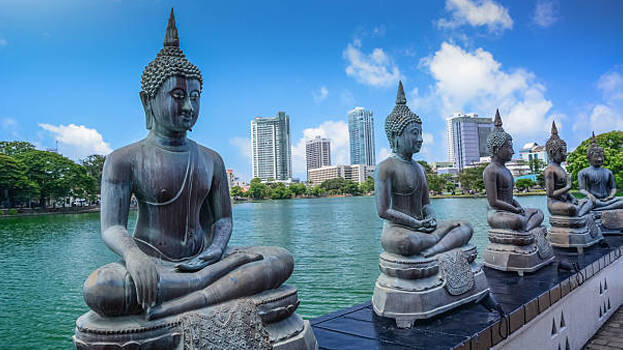

While writing this note, Sri Lanka is going through an extraordinary situation. The Rajapaksa family, which had wielded decisive influence and power in all major levels of government for a decade, is almost out of power. As the details of these significant changes are yet to come out, it is not practical to dive into a detailed evaluation. Undoubtedly, this change will bring in security to the lives and human rights of the Sri Lankan people. It is also likely that neighbouring countries, including India, will intensify their efforts to ensure that the latest developments do not take such turn that it might question the very dignity of the Sri Lankans.
The international community’s response ensuring the availability of essential commodities may help to avoid political instability and alleviate the sufferings of the people in Sri Lanka. While it is relieving to know that the political parties have risen to the occasion in a way that maintains the principle of political self-determination, yet the assistance of international economic organizations might be limited amid the event of financial instability.
Sri Lanka must be viewed in the backdrop of the economic collapse, social division and political instability created by the dictatorial regimes of Asian and African countries for about four decades.
The Rajapaksa family created sovereignty in all the administrative sectors of the country by cancelling all extensive government-level probes that were going on against them.
The attempts made by the former government, to stop all projects related to Colombo port’s development and to find ways to repatriate money outflows from the country, were thwarted with the return of Rajapaksa government to power. The return of Rajapaksa family is what can be pointed out as the most important change in Sri Lanka’s domestic politics. This major change in the local politics has probably made a significant difference in fields of regional political cooperation and international cooperation as well.
SAARC, an organization of South Asian countries, has avoided discussions on political issues between neighbouring countries. Experts opine that this is the reason for the increasing Chinese influence in the economic and diplomatic matters of south Asian nations. The Chinese method is dominance in all areas such as technology, employment sector and ownerships of structures etc. It is quite clear that China has begun using this method, which has been successfully implemented in Africa countries, in Sri Lanka and Pakistan as well. The Rajapaksa family also seized the opportunity to accelerate their financial interests by moving forward and accepting the seemingly liberal Chinese terms. However, what we see now is the downfall of a whole nation under the impact of a long-term debt.
In a post-colonial country like Sri Lanka which had a continuum of democratic governance, the unprecedented growth of a family’s private wealth has seriously wounded its democracy.
Sri Lanka has fallen into the loan trap laid by China in order to ensure its dominance in the area.
The practice of amassing huge wealth through political power is perhaps reminiscent of Mubarak’s corruption in Egypt, Marquez’s style in Philippines or even the Afghan regime in the past decades. In Sri Lanka, the situation is critical with the decline in domestic production and expatriates’ income following the pandemic. The major changes brought in the agricultural sector, without any foresight or rethinking have devastated the country’s economy.
With a sharp decline in the country’s GDP, similar losses have also been spotted in the tourism sector, plantations and in the diaspora income as well. The people in Sri Lanka are victims of a combination of distorted political development policies and the pandemic. It can also be evaluated that the unrestricted flow of Chinese goods into the island has destroyed the country’s very backbone.
The current temporary political system in Sri Lanka may help prevent the country from slipping into anti-people governance.